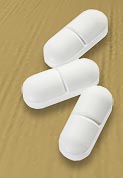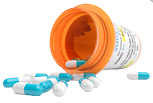
The new CDC report summarizes the 18 highest threat antibiotic resistant infections. MRSA is near the top of the list.
On Monday the US Centers for Disease Control and Prevention (CDC) released an extensive report about the growing threat of antibiotic resistance in the United States. The report details the risks, prevalence and national impact of 18 different superbugs, including MRSA, rating each according to level of concern. The report also outlines what can be done to combat these growing threats.


 When they were first discovered and used for treating infections in the 1940’s, antibiotic drugs were hailed as “miracle drugs”. And they were! They saved countless lives, and thank goodness we had them. Because antibiotics worked so well, doctors began prescribing them heavily instead of the natural treatment methods that were more common at the time.
When they were first discovered and used for treating infections in the 1940’s, antibiotic drugs were hailed as “miracle drugs”. And they were! They saved countless lives, and thank goodness we had them. Because antibiotics worked so well, doctors began prescribing them heavily instead of the natural treatment methods that were more common at the time.



